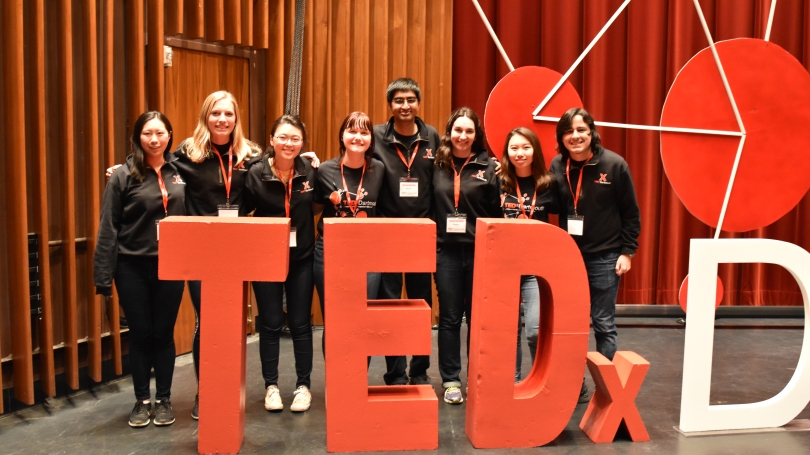
- Public Policy
- Leadership
- Funding
- News & Events
- About the Center
Back to Top Nav
Back to Top Nav
Back to Top Nav
Back to Top Nav
TED talks are timeless for their ability to inspire excitement for lifelong learning and create delight and wonder with ideas that have the power to change the world. In our second iteration of the TEDx conference at Dartmouth, we wanted to focus on how bold ideas can drive positive social impact and social change in the communities we belong to. Our inspiration for choosing the theme “living bridges” first came to us last summer, when we chanced upon photographs of root bridges in India. These living bridges are formed by local communities coming together in a social endeavor to guide the pliable roots of a tree across a river or stream and allowing them to strengthen and grow over time until they can support the weight of a human being. Perhaps what was most interesting to us about these bridges was that they are continuous works in progress as the roots grow and shift over time. As the Dartmouth community “honors our past and inspires our future” in its 250th year, this theme allowed us to highlight the bridges we have built and the bridges we have yet to build together in the years to come. We also wanted to stress how collaboration at Dartmouth promotes innovation and showcase creative ways as to how we can best challenge ourselves and better our communities.
This year’s conference was split into two sessions framed by sub-themes: “Addressing the Root of the Problem” and “The Branches that Connect Us.” In a broad sense, “the problem” that we are trying to address the root of in our first session is our tendency toward reaction rather than proaction when it comes to issues of social justice and social impact. All our speakers from our first session shared personal narratives that we hope will stimulate a greater awareness and call to action on issues of great importance to our community’s future. Dartmouth’s sustainability director, Rosi Kerr ‘97, revealed her vision for why we need to think beyond sustainability to tackle our growing energy crisis, while Staci Mannella ’18 shared her deeply moving personal story and current work to connect and open doors for people with disabilities.
In our second session of the day, we turned toward the importance of collaboration and teamwork in addressing the future’s challenges. Throughout my four years as an undergraduate, I have had the opportunity to be a part of partnerships and projects working across disciplines, cultures, and boundaries. My Dartmouth education has strengthened my core belief that collaboration across differences gives us the ability to challenge our biases and perspectives while engaging in self-reflection, deeper learning, and personal growth. We therefore aimed for each speaker in this session to share a different “branch” that brings us closer together. For instance, Associate Dean of Global Health Lisa Adams MED ’90 stressed the importance of equity in working across international boundaries. Dr. Odette Harris ‘91, who holds the distinction of being the first black female tenured professor of neurosurgery in the country, shared her innovative research on health disparities in traumatic brain, while Pete McBride ’93 reflected on the importance of conservation in the context of our shared awe and amazement of natural wonders such as the Grand Canyon.
More than ever before, solutions to the world’s challenges require teamwork, cooperation, and interdisciplinary engagement. There are “living bridges” all around us, and we aim for TEDxDartmouth to become a launching pad that brings together those in our community that dare to think audaciously and challenge the status quo. As we all have a role to play in our shared future together, we aspire to bring together all parts of the Dartmouth community through the TEDx initiative. In the spirit of TED’s mission of “ideas worth spreading,” it is my hope that the ideas presented at TEDxDartmouth will continue to foster social innovation and provide an inclusive forum for discussion, thought, and debate.
-Submitted by Arvind Suresh '19, Rockefeller Center Mini Grant Recipient
The Rockefeller Center's Mini-Grants program funds registration fees for students attending conferences, as well as the costs of bringing guest speakers to Dartmouth. The views and opinions expressed here are the author’s own and do not necessarily represent the views and opinions of the Rockefeller Center or constitute an endorsement by the Center.